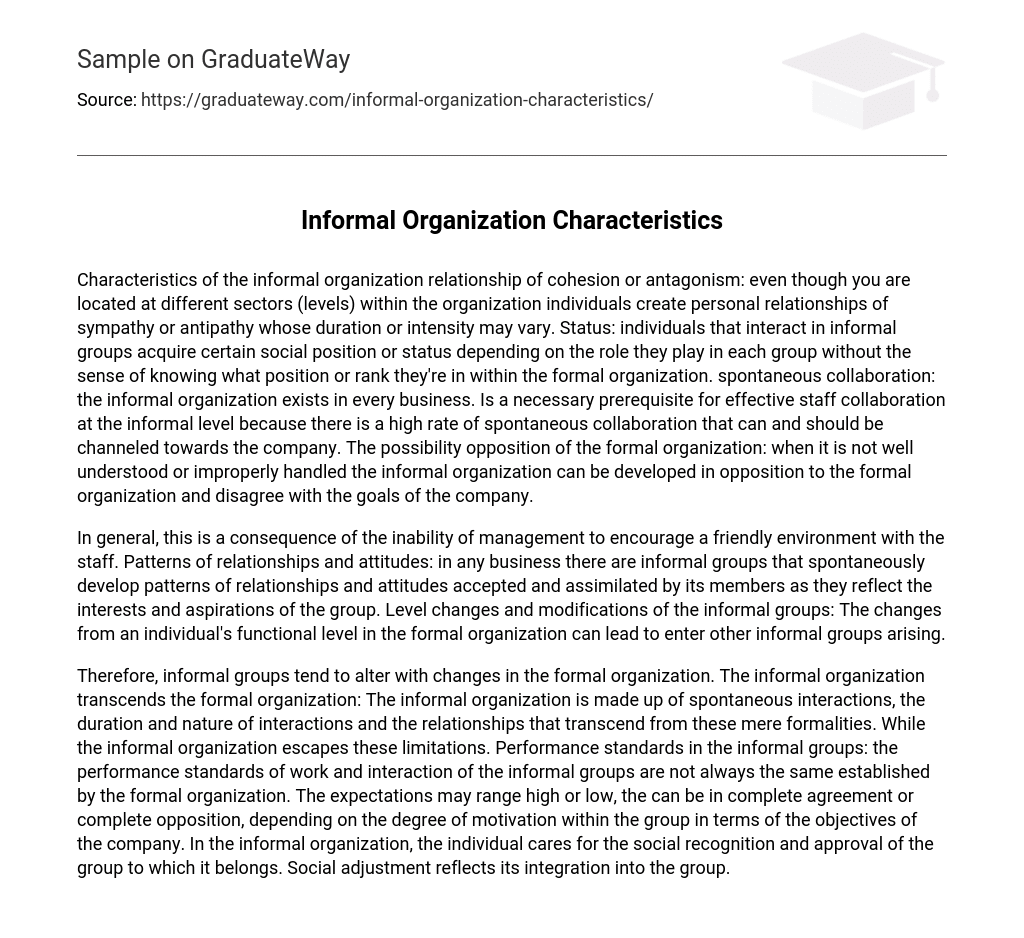Characteristics of the informal organization relationship of cohesion or antagonism: even though you are located at different sectors (levels) within the organization individuals create personal relationships of sympathy or antipathy whose duration or intensity may vary. Status: individuals that interact in informal groups acquire certain social position or status depending on the role they play in each group without the sense of knowing what position or rank they’re in within the formal organization. spontaneous collaboration: the informal organization exists in every business. Is a necessary prerequisite for effective staff collaboration at the informal level because there is a high rate of spontaneous collaboration that can and should be channeled towards the company. The possibility opposition of the formal organization: when it is not well understood or improperly handled the informal organization can be developed in opposition to the formal organization and disagree with the goals of the company.
In general, this is a consequence of the inability of management to encourage a friendly environment with the staff. Patterns of relationships and attitudes: in any business there are informal groups that spontaneously develop patterns of relationships and attitudes accepted and assimilated by its members as they reflect the interests and aspirations of the group. Level changes and modifications of the informal groups: The changes from an individual’s functional level in the formal organization can lead to enter other informal groups arising.
Therefore, informal groups tend to alter with changes in the formal organization. The informal organization transcends the formal organization: The informal organization is made up of spontaneous interactions, the duration and nature of interactions and the relationships that transcend from these mere formalities. While the informal organization escapes these limitations. Performance standards in the informal groups: the performance standards of work and interaction of the informal groups are not always the same established by the formal organization. The expectations may range high or low, the can be in complete agreement or complete opposition, depending on the degree of motivation within the group in terms of the objectives of the company. In the informal organization, the individual cares for the social recognition and approval of the group to which it belongs. Social adjustment reflects its integration into the group.





